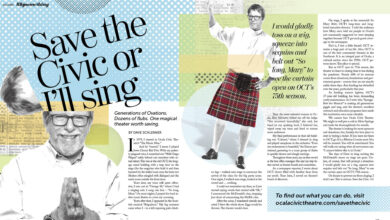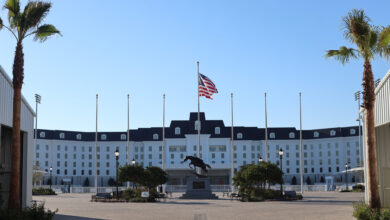A King’s Dream in Action
By John Sotomayor
Photos by: Cynthia Wilson Graham
In August of last year, four months after the 50th anniversary of the assassination of Dr. Martin Luther King Jr, ten prominent and influential members of the Ocala/Marion County black community were honored with a place on the Community Service Walk of Fame at Legacy Park, which was created through a partnership between The Governor’s West Neighborhood Revitalization Council and the city of Ocala’s Recreation and Parks Department, Now, in honor of Black History Month, we asked for nominations and enlisted members of the black community, for those who are living King’s dream through community service, representation and leadership, to discuss the advancements that have made and the challenges that still exist.
Looking back on his personal history and life circumstances, Whitfield Jenkins can only conclude that a higher power intervened along the total spectrum of events which has molded him. He was born into physical poverty and lost his mother to breast cancer at age five-years old. He was raised by a single father, born in 1881, who lived to be 103-years of age. He asserts, that according to today’s experts, he should have been a statistic for the criminal justice system or worse.
“However, as I review my history of 78-years of life, I am proud that the Lord not only saved me, but use me for his glory,” declares Jenkins.
Shortly after returning to his hometown, following college and military duty, Jenkins was motivated to work to eradicate racism, illegal discrimination and lack of access to services on behalf of the black community. He began speaking publicly in the community and at official town hall meetings on issues including police brutality, discriminatory employment practices and disparate services to the black community.
This advocacy caught the attention of leaders in the local NAACP, leading them to elect Jenkins as president of the Branch in 1984. He was fortunate to participate at the State NAACP level early in his tenure, where Jenkins caught the attention of the State NAACP President, Thomas Henry “T.H.” Poole, Sr. “History will record him as one of the greatest civil rights leaders nationally.” Jenkins offers.
President Poole quickly took Jenkins under his wing and acted as a mentor to him. Jenkins used this valuable teaching and experience to work with the local NAACP Executive Committee to develop the Marion County Branch-NAACP into one of the most formidable in the nation. The Branch was awarded three 1st place Thalheimer awards, given to branches and units for outstanding achievements.
Despite all he has seen and done toward the advancement of the black community, he sees several critical challenges ahead for black Americans in order for the community to advance further. Not surprisingly, he sees the largest obstacle to be outright racism aimed at the black community as a whole — or as he phrases it, a lack of compassion for humanity. Within the black community, he believes that the challenges are a lack of leadership, a lack of courageousness a lack of commitment to the struggle for equality, and a lack of giving back to the community.
Fortunately, there are many members of the black community who have both achieved success and who actively give back. They represent people from all walks of life and various fields, including law enforcement, education, sports, spiritual guidance, and community service.
The Moment That Became a Movement
The “I Have a Dream” speech was delivered by American civil rights activist Martin Luther King Jr. on August 28, 1963, during The March on Washington for Jobs and Freedom. During the speech, King called for civil and economic rights for African Americans, and an end to racism in the United States. It is a speech that will continue to inspire and live on for all of human history.
“I have a dream that my four little children will one day live in a nation where they will not be judged by the color of their skin but by the content of their character,” said King, from the steps of the Lincoln Memorial, to an audience of over 250,000 civil rights supporters. It was a speech that galvanized the civil rights movement.
His assassination almost five years later on April 4, 1968 was intended to silence the movement. It did the opposite — it ignited it.
A Passion for Community
In Ocala, Jenkins fought for equity in recruiting, hiring, training and promotions of minorities in Marion County School District, Marion County Sheriff Department, City of Ocala/Ocala Police Department, and Marion County Government. He was one of the key leaders and a plaintiff in the filing of a discrimination lawsuit against the Florida Department of Corrections. As Commissioner with Ocala Housing Authority, he used his role to increase affordable, clean and safe housing in such West Ocala communities as Laurel Parks, Blitchton Station, and Magnolia Walk apartments. Jenkins was also one of the original Board of Directors/Founders of the Greater Ocala Community Development Corporation, Inc. (GOCDC) — one of the most impactful economic development initiatives in West Ocala. As a Commissioner with the Florida Commission on Human Relations, Jenkins provided leadership to increase staffing and budget, resulting in increased processing of discrimination complaints and more quality findings by the FCHR.
Dwan Thomas, coordinator of Alternative Learning, Marion County School Board; CEO of Open Hands Ministry LLC; and board member of Enough is Enough Organization. Thomas is involved in the Dr. Martin Luther King Jr. Commemorative Commission, which organizes the annual Dr. Martin L. King Jr. Weekend in Marion County. As a board member of the West Ocala CRA Advisory Committee and Brownfields AC Committee, Thomas also ensures that grant funds are being used to benefit West Ocala.
Dennis P. McFatten Jr., coordinator for the Safety Schools Department, Marion County Public Schools, worked in the law enforcement profession from 1990-2015. He spent four years with the Florida Department of Corrections, followed by 21 years with the Marion County Sheriff’s Office. He retired in 2015 as a Captain within the Patrol Division. Prior to his law enforcement career, McFatten spent time in the United States Army and Army Reserve. Currently the president of GWONRC, McFatten and the council are always engaged in conversations with government officials and other civic organizations to address concerns in West Ocala. “Since the council is comprised of community leaders from various organizations, we have a wide range of projects,” explains McFatten. A few of those include: The West Ocala Community Redevelopment Grant, The City of Ocala Brownfield Grants, he City of Ocala Façade Grants, the redevelopment of Pine Oaks Golf Course, the committee for Community Coordination of the NAACP and the planning and building of a community center in West Ocala. McFatten is currently the president of Governor’s West and a member of the NAACP. He is a deacon and Trustee chair at Progressive Union Missionary Baptist Church.
“The Civil Rights Act of 1964 outlawed discrimination based on color, sex, race, or national origin. It promotes equal opportunities through voter registration and prohibits racial segregation in employment, schools, housing and public accommodation,” explains TiAnna Greene, the new president of the Marion County NAACP. She was elected on November 11, 2018, and serves as the youngest female president of the Marion County branch of the NAACP.
“However, one of the many challenges to the Civil Right Act is that the act cannot change a mindset—the internal attitudes and beliefs of individuals,” says Greene. “While we hope each and every day that we move closer to the full actualization of Dr. King’s, and so many others’, hopes for an indivisible America, we are not naive or ignorant to the plethora of discriminatory practices African Americans continue to face.”
According to Thomas, the challenges he sees for African Americans is the lack of adequate resources being provided and community knowledge about how to access the resources them. Thomas also feels that the younger generation needs to get more involved in what is going on in their communities.
“I attend numerous community events and meetings were decisions are being made for the African American community but you don’t see the younger generations attending these meetings,” Thomas asserts. “These decisions will impact our community as a whole.”
Tanya Walker, president of U.N.I.T.Y. Group Services Inc. and Unity Community News (both organizations owned by The Good Samaritan), explains that the main challenge African Americans face today is unfair employment practices. “Such as not being provided with the opportunity to apply for jobs other than those that offer minimum wages” Walker contends, adding that her source information is taken from city records and meetings with community leaders.
McFatten feels one of the greatest challenges for the black community is the allowance for others decide their self-worth. “African Americans have greatly contributed to the many accomplishments of this city, county, state and nation. Yet we often times depend on others to decide what we’re worth and we often settle for less or become who others want us to be,” McFatten declares. “If we meet the self-worth challenge head on, we can then address, unemployment, affordable housing and education disparity and some of the other issues.”
Breaking Boundaries
Many members of the community have pushed past the barriers once imposed as a way to limit opportunities, making a difference in fields that were traditionally out of their reach.
Jenkins was awarded a football scholarship to Florida A&M University playing on the team from 1859-63, earning two National Black Championships. He went on to become a Marion County school teacher at Osceola Jr. High from 1967 to 1971. He was one of the first black teachers permitted to teach across racial lines during the first year of integration, beginning in 1967.
Ann Burnett is the founder and Executive Director of FreeD.O.M. Clinic USA. In collaboration with the Marion County Hospital District’s talented volunteers and staff, she has pioneered a unique delivery of health care services for Marion County residents. Each month they convene a clinic in a church and provide free dental care (cleanings, fillings, extractions), comprehensive eye care (including new reading, single vision and bifocal glasses), medical care, legal services and mental and behavioral health assessments. In an effort to assist in addressing mental health and substance abuse, FreeD.O.M. Clinic USA has full time professionals who provide free counseling and therapeutic case management services for the uninsured and working poor. Access to health care affects all ethnic groups in Marion County, therefore their services have proven to be beneficial to everyone including those in the African American community. “After receiving services at FreeD.O.M. Clinic, smiles, eyes, minds and lives are transformed regardless of the patient’s ethnicity,” states Burnett
Grace Daley is a former professional basketball player who played for four different WNBA teams and seven European teams in five different countries. She returned to Ocala as a teacher, having taught kindergarten, 2nd grade, 5th, 9th, 11th and 12th grades, and adult education. She is currently a teacher at Trinity Catholic High School, as well as Director of Health Education for FreeD.O.M. Clinic USA. “When I was hired three years ago [at Trinity Catholic], I was the only African American teacher,” said Daley. “We currently have an African American female principal, Dr. Erika Wikstrom — the first in the school’s history, so we are making monumental strides in a positive direction toward diversity.”
As Coordinator of Alternative Learning- Marion County School Board, CEO of Open Hands Ministry LLC, and Board Member of Enough is Enough Organization, Thomas gives back to the community.
“I currently work with “at-promise” youth that have committed criminal acts in the community,” said Thomas. “My job is to make sure they’re provided every opportunity to be successful academically, socially and emotional while they are in our Department of Juvenile Justice programs.”
Enough is Enough organization partners with Dale Osborne a NBA assistant basketball coach with the Portland Trail blazers to conduct a back to school book giveaway and basketball camp. The NBA and Jr. NBA have been sponsors, along with many other organizations in the community, coming together to provide a free basketball camp based on faith, family and education.
The current projects of U.N.I.T.Y Group Services Inc, of which Walker serves as president, are clothing distribution; providing professional clothing to those seeking employment but do not have the proper attire, providing free work readiness training in the areas of customer service, and typing, along with employment referral Services.
“As a member of the community my goal is to ensure that everyone has the same opportunity and are given the chance to compete on a level playing field,” said Walker. “Working for The Good Samaritan, founder of U.N.I.T.Y Group Services Inc, I have the pleasure of providing food and clothing to disadvantaged families and adults, and also helping to tutor at-risk students.”
In addition to her nonprofit works through U.N.I.T.Y., Walker serves on numerous boards, in particular the Financial Stability Board of United Way, helping to fund organizations that are seeking to help the poor, as well as the Recreation & Parks board for the City of Ocala, ensuring that adequate recreation is provided to residents.
One of the youngest members of the community on an inspiring journey is the model and entrepreneur Chanté Burkett. At 22 years old, Burkett has achieved major success as a plus-sized model and blogger with over 200,000 followers on Instagram and over 120,000 more on Facebook. Her talents and social media following have led to lucrative contracts with major beauty companies and hotel chains. “My aspiration is to help others become the mastermind behind their visions & dreams,” explains Burkett. “One of the reasons I love the work I do is because it gives me to opportunity to give back and inspire others in my community to believe in themselves.”
Through her company One Curvy Boutique, located in Ocala, Burkett helped to sponsor and volunteer resources to many organizations, individuals, and causes within Ocala’s black community such as the Marching Majorettes & Ocala Thunder youth organizations.
Community Action
Many projects are underway, led by African Americans, to change the mindsets Greene spoke of — the attitudes and beliefs of individuals of other races and of African Americans themselves. There are projects under way to provide resources and job opportunities Thomas and Walker addressed. There are movements in motion for African Americans to determine their own self-worth and to abolish the challenge McFatten addressed.
Jenkins is presently using his role as president of the Liberation Ocala African American Council (L.O.A.A.C.) to organize local black leaders/organizations to work in coalitions for key equity issues, economic development/wealth, participation in the political system and education equity to benefit local black citizens and their communities. The L.O.A.A.C. will be working in partnership with other organizations to assist ex-felons to restore civil and voting rights. “The NAACP Marion Branch will host our annual Freedom Fund Gala on March 1, 2019, at the Holiday Inn & Suites Ocala Conference Center,” said Greene. “Tickets are on sale now for $60 each. Aramis D. Ayala, First Elected African American State Attorney for the Ninth Judicial Circuit Court is the Keynote speaker. Doors will open at 7pm, with a Lifetime Membership reception at 6pm.”
Greene shares on the #iGNITEtheMarionVote Facebook page that the goal of the Marion Branch NAACP, with this Civil Engagement movement, is to encourage the community to participate in the voting process and to focus on raising awareness about the political, educational, social and economic inequality within the community. The statement goes on to say that the Marion Branch NAACP is working tirelessly to iGNITE the Marion Voters by increasing voter registration to include registering felons, voter participation and voter education.
Fathers of the Year Awards encourages people in the community to reflect on the fathers who are actively involved in the lives of their child(ren).
“Eleven categories provide us the opportunity to present awards to multiple fathers,” explains Greene. “The submissions assist with shifting the focus off of inactive fathers to the fathers who are not only engaging their children, but also the community.”
Greene added the Marion County Black Business Network was established to support small minority business owners.
Legacies Honored
In August 2018, 10 long-time community leaders were honored with brick pavers engraved with Bible quotes in the unveiling of the Community Service Walk of Fame at Legacy Park. Requirements for selection still living or deceased included residency of Ocala or Marion County for at least 10 years and currently resides in the community, have shown high regard for community service, leadership and commitment to the advancement of West Ocala; and demonstrated good moral character. They had to be either community leaders or special individuals who have made an impact on the African American community.
Ocala Mayor Kent Guinn and Ocala City Councilwoman Mary Sue Rich, whose district includes West Ocala, read short biographies of the honorees during the ceremony. The recipients were: Juanita P. Cunningham, Rev. Lorenzo S. Edwards, Matthew Everett Hart Jr., William H. James, Reuben “Bubba” Johnson, Leander “Butch” Jones Jr., Austin Long, Lois B. Miller, Lucious C. “L.C.” Stevenson, and Frank Washington Jr. They were educators, community activists, freedom fighters, community volunteers, pastors, civil rights leaders, humanitarians, law enforcement, entrepreneurs, and authors.
An Ongoing Legacy
According to McFatten, who is also president of the Governor’s West Neighborhood Revitalization Council, the 10 brick pavers are only the beginning. More will be added to the Walk of Fame annually. OM
EDITOR’S NOTE: It is relevant to mention that, not only was every person profiled in this feature nominated by another African American in the local community, but we had two African American photographers shoot all the images, Cynthia Wilson Graham for this feature, and Philip Marcel for the profile on Kanyon Walker and the cover of the February issue. At Ocala Magazine, we strive to represent the entire tapestry of our various communities accurately and equally. We want to hear from you with regard to your opinions, story ideas, and events. Please find us on Facebook or email editorial@ocalamagazine.com.
Additional Content:
The following is what was read from the short biographies by Mayor Kent Guinn and City Councilwoman Mary Sue Rich about the honorees on August 08, 2018 during the unveiling of the Community Service Walk of Fame at Legacy Park. All biographies provided by the City of Ocala. *Listed in alphabetical order by last name.
Juanita P. Cunningham
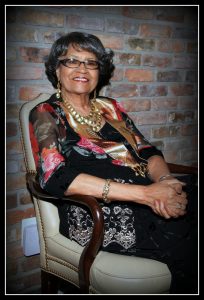
Juanita P. Cunningham is a retired educator, community activist, freedom fighter and community volunteer. She fought to have breakfast served in schools, believing students could not focus on learning with empty stomachs. She also served as assistant principal and then principal at Vanguard High School. She has served in several community organizations and is a lifetime member of the NAACP.
Rev. Lorenzo S. Edwards
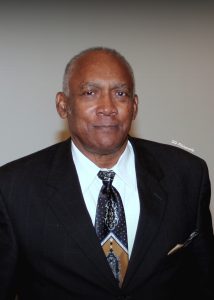
Rev. Lorenzo S. Edwards is a pastor and was a civil rights leader, standing up for the community in non-violent protests including a sit-in. He served on the Ocala City Council, twice as chairman, was president of the local branch of the NAACP, was involved in the chamber of economic progress and was dean of minority affairs at what is now the College of Central Florida.
Matthew Everett Hart Jr.
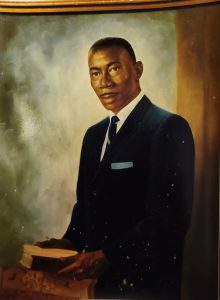
Matthew Everett Hart Jr. was an educator and activist who dedicated his every waking moment to ensure quality education was provided to Marion County African American students. He would attend School Board meetings to advocate for students or encourage parents to rally and do it themselves.
William H. James
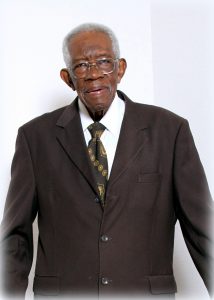
William H. James is a retired educator, humanitarian and Marion County Sheriff’s Office volunteer. He worked in Marion County schools for more than 40 years and has sat on numerous community boards and councils. He actively writes and visits inmates at the Marion County Jail.
Reuben “Bubba” Johnson
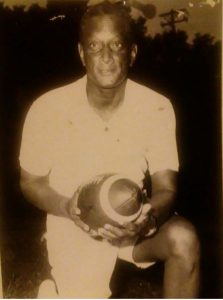
Reuben “Bubba” Johnson taught character to and helped get scholarships for young men and women. He coached football and other athletics at Howard Academy and Howard High School. He encouraged children to pursue a life beyond the orange groves and tomato fields and demanded excellence in the classroom and on the athletic field.
Leander “Butch” Jones Jr.
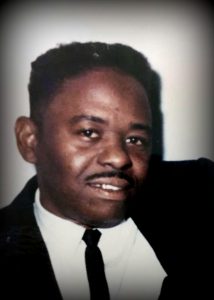
Leander “Butch” Jones Jr. was employed by the Ocala Police Department for more than 20 years as a patrolman and a detective and was wounded in the line of duty. He acted as a mentor to other African Americans in the department and helped with recruitment. The department recognized him during Black History Month. He also was involved in several organizations and was considered a community-minded person.
Austin Long
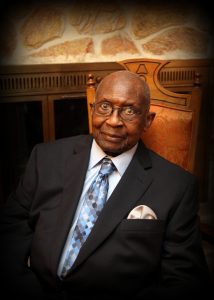
Austin Long was an entrepreneurial businessman who would own two grocery stores and one barbecue place. He was a pillar in the community during the era of Jim Crow laws, segregation and lynching. He had several run-ins with the Ku Klux Klan when he first opened his grocery store and was even denied service by some delivery drivers at first. He provided jobs to people with criminal backgrounds at his businesses and opened his store to students at Howard Academy when their cafeteria burned down.
Lois B. Miller
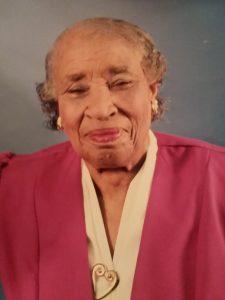
Lois B. Miller was an author, community leader and historian who documented part of West Ocala’s history. She was instrumental in establishing the Federate Women’s Club in Ocala, which provides scholarships to high school graduates. She also led efforts to renew the historic Chestnut Cemetery on Northwest 13th Terrace between Northwest Seventh and Fifth streets.
Lucious C. “L.C.” Stevenson
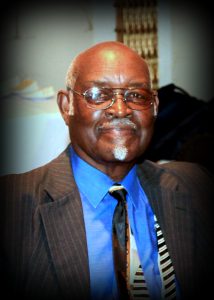
Lucious C. “L.C.” Stevenson was a former president of the Hunting and Fishing Club created in the ’60s to protect the Pinkston family during the civil rights movement. Frank Pinkston led the movement in Marion County and would ask to “go fishing” when he or his family needed protection. Stevenson also provided a facility for African Americans to frequent during segregation.
Frank Washington Jr.
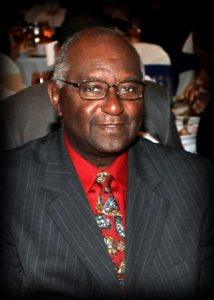
Frank Washington Jr. is a retired educator, having worked for more than 30 years. He taught math, science, history and social science at Stanton Jr. High School and physical education at N. H. Jones Elementary School. He was instrumental in establishing the mentoring program at Howard Middle School.
Annual Beautiful in Black Festival
Date: 02/02/2019 10:00 AM – 7:00 PM
Location: Citizens’ Circle 110 SE Watula Ave Ocala, Florida 34471
A celebration of black excellence and paying homage to the ancestors and trailblazers that paved the way. This one-of-a-kind event is a unique expo that honors and celebrates the past, the present and future African American legends and leaders of society. For additional details, please contact Kasadraine D. Eftson of Undefined Shades, LLC at 352.210.8408.
Meeting of the Minds
In Dec 2018, the first ever African American Think Tank was held in Ocala/Marion County. Tanya Walker of UNITY Group Services and Daystar Radio 89.5 reported the following on Facebook.
“The purpose of the [First African American] ‘think tank’ [hosted by Whitfield Jenkins] is to discuss the problems of the black community and provide workable solutions. Numerous black leaders attended. Mr. Jenkins stated that this is the first of many more meetings to come,” wrote Walker. Long-time local civil rights activist, Whitfield Jenkins, President of the Liberation Ocala African American Council, Inc. replied, “Thanks to all the Millennium local leaders and Emeritus leaders who attended this meeting to engage in a dialogue of uplift for the community and persons within. The meeting intended to encourage persons in leadership to work together on key needs and interests for the community, including the underserved community. It also was intended for youth leaders to come forth and serve with commitment, courage, humility, and love. It’s a beginning, not the end. God gets the glory!”



